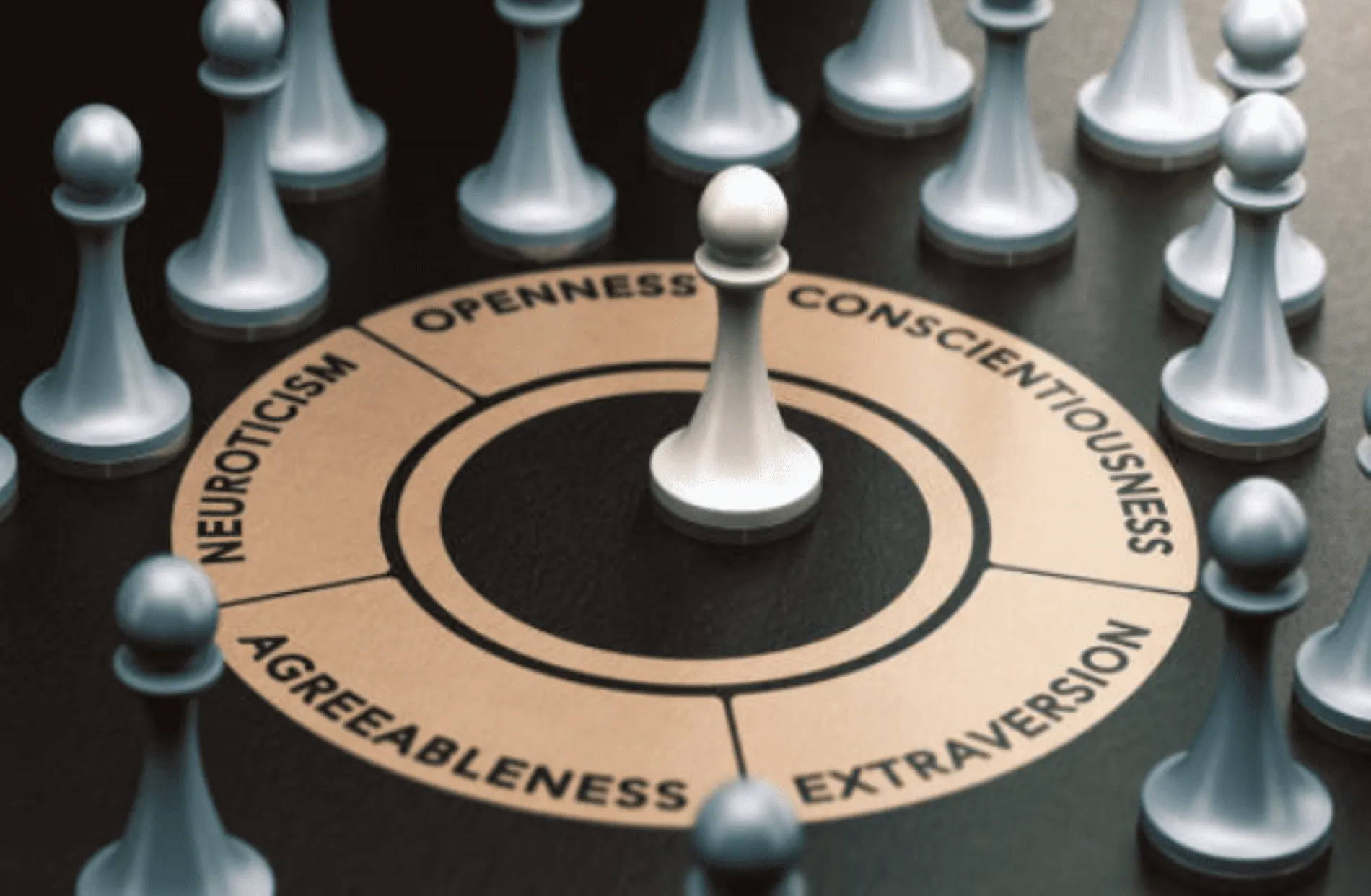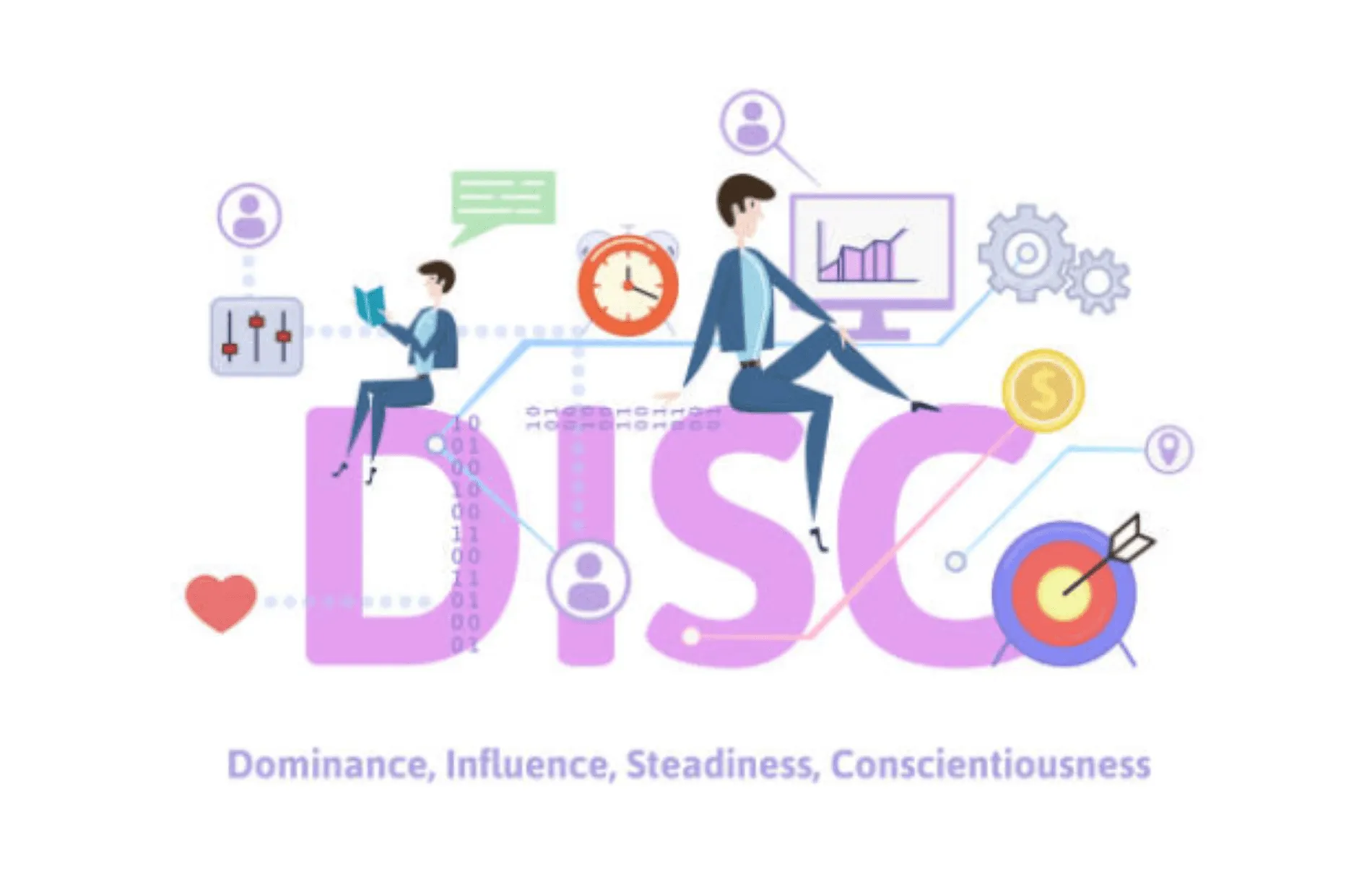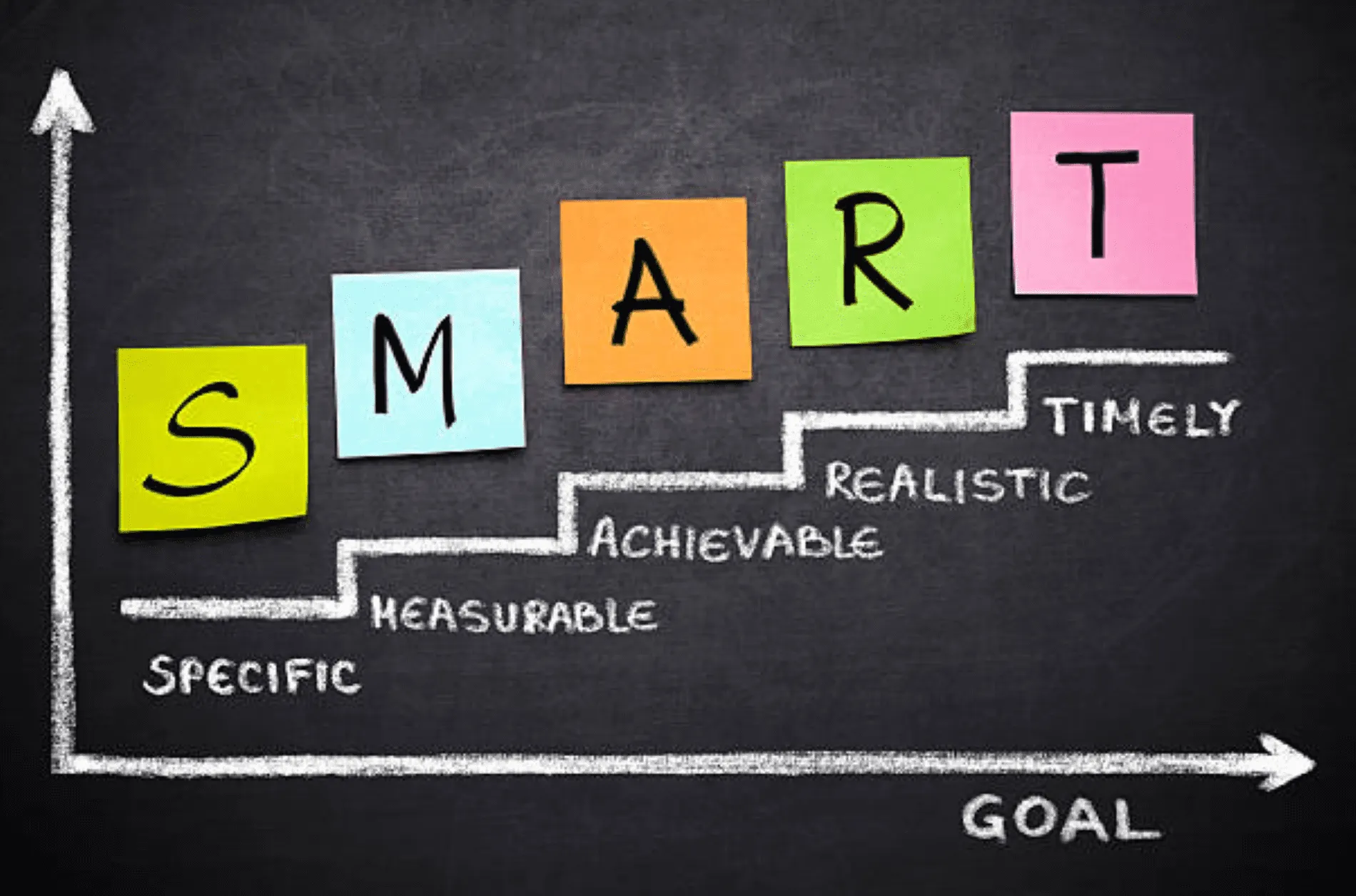Unlock Personality Secrets: The Ulitmate Behavioral Assessment Guide

Author: Tyesia Hunter
Uncover the Secrets of Personality Types: The Ultimate Behavioral Assessment Guide
Understanding the Power of Personality Types
Personality is a multifaceted construct that influences how individuals think, feel, and behave. It encompasses a wide range of traits, preferences, and patterns of behavior that shape an individual's unique character. The power of personality types lies in their ability to provide valuable insights into human behavior and offer a framework for understanding ourselves and others.
One significant application of personality types is in the realm of hiring and recruitment. Increasingly, companies are recognizing the benefits of utilizing behavioral assessments as part of their hiring process.
By incorporating these assessments into their recruitment strategies, organizations can gain a deeper understanding of candidates' personalities beyond what can be gleaned from resumes and interviews alone. Behavioral assessment tests provide an objective measure to evaluate traits such as communication style, decision-making approach, adaptability, and teamwork orientation - all critical factors for success in today's dynamic work environment.
However, the power of personality types extends well beyond the employment setting. Understanding our own personality type can offer profound self-insight and enhance personal growth.
Self-awareness is at the core of personal development; it allows individuals to recognize their strengths, identify areas for improvement, and optimize their potential. Moreover, comprehending our unique personality traits can help us navigate relationships more effectively by enhancing communication skills, empathy levels, and conflict resolution abilities - ultimately fostering healthier connections with others.
Research has consistently shown that personality type influences various aspects of life ranging from career choices to relationship dynamics. By uncovering these underlying patterns through behavioral assessments or typing systems such as Myers-Briggs Type Indicator (MBTI), Enneagram types, or DISC model - individuals gain access to invaluable knowledge about themselves and others around them.
Armed with this understanding, we are better equipped to harness our innate strengths while also recognizing potential blind spots in our interactions with others. Grasping the power inherent in different personality types allows us to appreciate the incredible diversity found within humanity.
It enables us to cultivate self-awareness, optimize personal growth, and establish more meaningful connections with others. Whether it be in the context of behavioral assessment for hiring, personal development, or fostering better relationships, the understanding of personality types has become an indispensable tool in today's world.
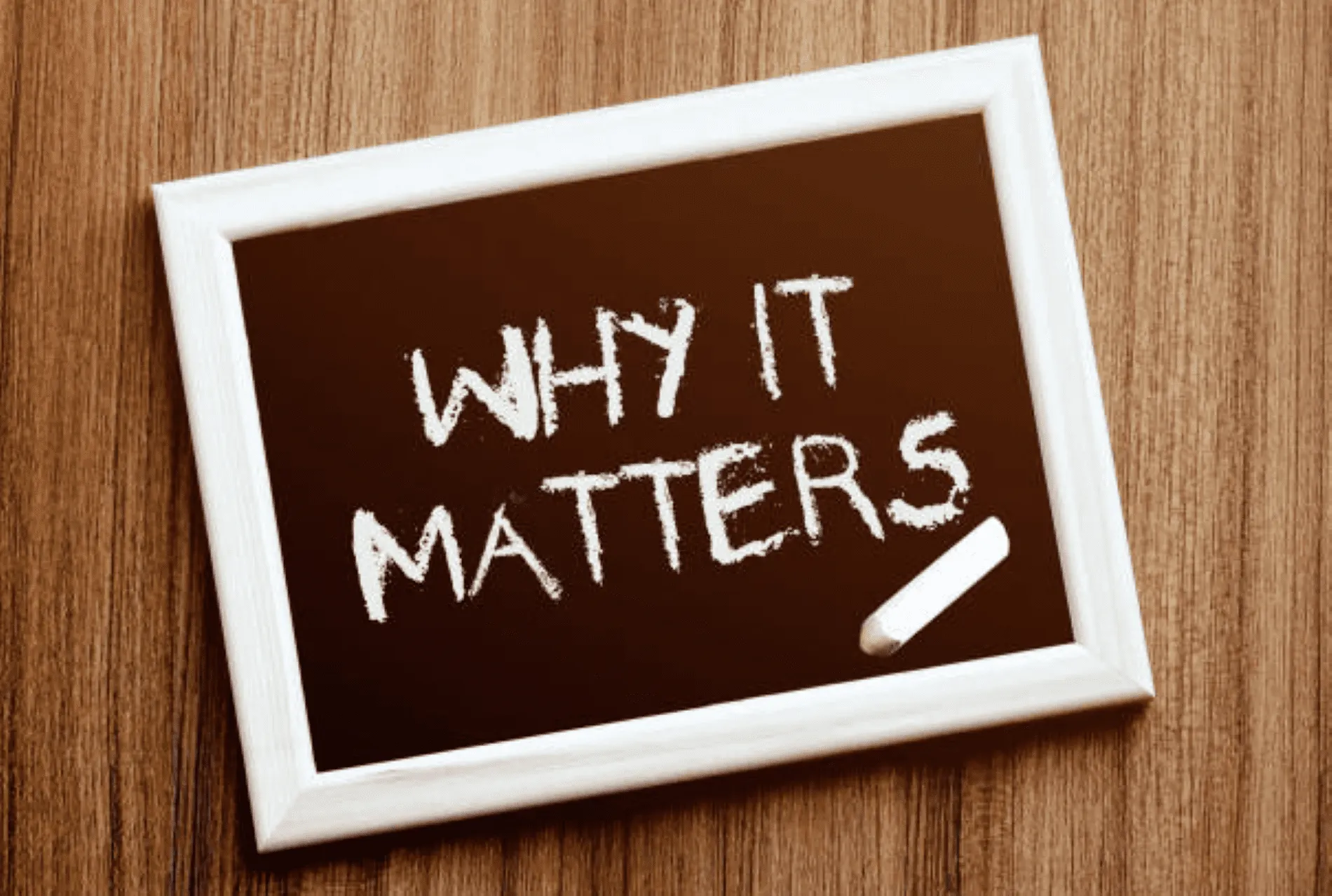
Why Behavioral Assessment Matters
Behavioral assessment is a powerful tool that provides valuable insights into an individual's personality, traits, and behavioral patterns. It plays a crucial role in various areas, including personal development, team dynamics, and even hiring decisions. Understanding why behavioral assessment matters can help us harness its potential benefits more effectively.
Firstly, behavioral assessment brings clarity to personal development. By gaining a deeper understanding of our own personality traits and behavioral patterns, we can identify our strengths and weaknesses with greater clarity.
This knowledge empowers us to capitalize on our strengths and work on areas that need improvement. Behavioral assessment tests provide a roadmap for personal growth, whether it's enhancing communication skills, developing leadership qualities, or managing emotions effectively.
Secondly, in the context of team dynamics, behavioral assessment helps build stronger and more effective teams. By assessing the personalities of team members using tools such as the Myers-Briggs Type Indicator (MBTI), the DISC model, or the Enneagram types, managers can create well-balanced teams by strategically placing individuals with complementary skills and traits together.
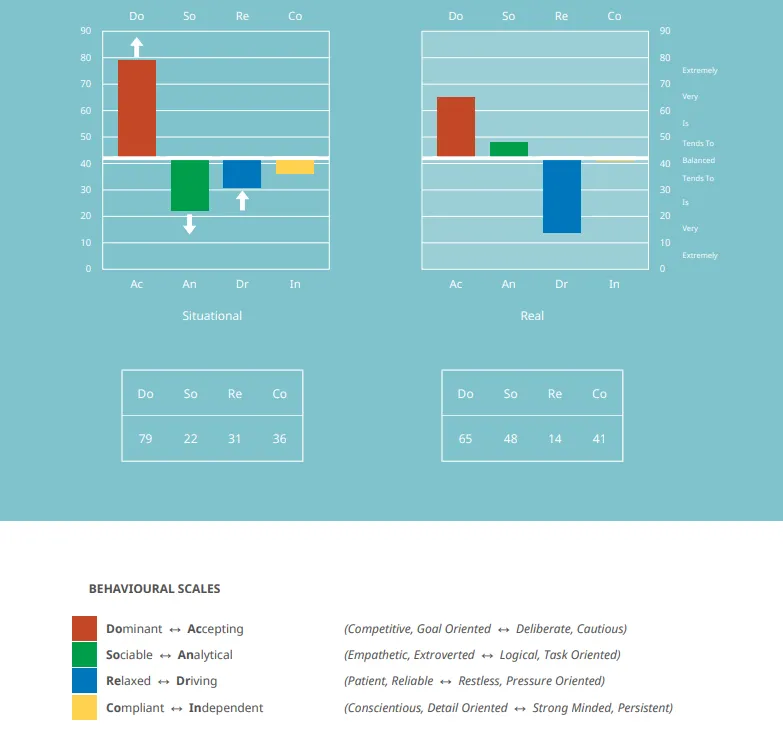
Understanding each team member's communication style or decision-making approach helps minimize conflicts while maximizing collaboration. Behavioral assessment tests are increasingly used in the process of hiring new talent.
Organizations have recognized that technical skills alone are not enough to ensure success in a candidate's role. Hiring managers now value soft skills such as adaptability, teamwork abilities, leadership potential, and conflict resolution capabilities equally as they do technical expertise.
Behavioral assessments aid in evaluating these critical factors objectively during the selection process. By using tools like the DISC model or customized job-specific assessments aligned with desired competencies for a particular role or industry sector – employers can make informed decisions about candidates' suitability for positions within their organizations.
Behavioral assessment is essential because it gives individuals an opportunity to understand themselves better for personal growth and development; it helps create harmonious teams by leveraging diverse strengths and styles, and it assists organizations in making sound hiring decisions that align with the required competencies for a specific role. By embracing behavioral assessment, individuals, teams, and organizations can unlock the secrets of personality types to drive success and optimize performance.
Learn more about the importance of behavioral assessment

Defining Personality Types
Personality types are a way to categorize and understand the various patterns of behaviors, thoughts, and emotions that individuals exhibit consistently over time.
These types provide a framework for analyzing and predicting how people are likely to respond in different situations. By identifying and studying personality types, we can gain valuable insights into our own strengths and weaknesses, as well as those of others.
One widely used model for defining personality types is the Big Five Model. This model breaks down personality into five broad dimensions: openness to experience, conscientiousness, extraversion, agreeableness, and neuroticism.
Each dimension represents a spectrum along which individuals can fall. For example, someone high in openness to experience is likely to be imaginative and curious, while someone low in conscientiousness may tend to be more disorganized or careless.
Another popular framework for understanding personality types is the Myers-Briggs Type Indicator (MBTI). Based on the theories of Carl Jung, MBTI classifies individuals into 16 different personality types based on four dichotomies: extraversion vs. introversion (E/I), sensing vs. intuition (S/N), thinking vs. feeling (T/F), and judging vs. perceiving (J/P).
These combinations offer a comprehensive view of an individual's preferences in perception and decision-making processes. Additionally, the Enneagram system defines nine distinct personality types based on core motivations or fears that drive behavior.
The Enneagram focuses on understanding an individual's inner motivations rather than external traits or characteristics alone. Each type is characterized by its own set of desires, challenges, strengths, and weaknesses.
Understanding Enneagram types offers deep insights into why people behave the way they do. By understanding these different models for defining personality types - including the Big Five Model, MBTI system, and Enneagram - we gain a rich toolkit for comprehending human behavior at various levels of depth and complexity.
These models can be utilized in a variety of contexts, ranging from personal self-awareness and growth to team dynamics, leadership development, and even behavioral assessment for hiring purposes. Ultimately, the goal of defining personality types is to enhance our understanding and appreciation of the vast diversity found within the human race.
Introduction to the Big Five Model
The Big Five model, also known as the Five-Factor Model (FFM), is one of the most widely used frameworks for understanding and assessing personality traits. It categorizes human personality into five dimensions, providing a comprehensive view of an individual's behavioral tendencies. These dimensions are commonly referred to as openness to experience, conscientiousness, extraversion, agreeableness, and neuroticism.
Openness to experience reflects an individual's receptiveness to new ideas, creativity, and curiosity. People high in this trait tend to be adventurous and open-minded, embracing novel experiences with enthusiasm.
Conversely, those low in openness often prefer routine and stability. Conscientiousness entails qualities such as organization, responsibility, and self-discipline.
Individuals scoring high in this trait are often reliable and focused on achieving their goals. They possess a strong sense of duty and are typically well-organized in both their personal and professional lives.
Extraversion refers to the degree of sociability and assertiveness an individual displays. Those who score high on this dimension thrive in social situations; they are outgoing, energetic, and enjoy being surrounded by people.
On the other hand, introverts tend to be more reserved and prefer quieter environments that allow for introspection. Agreeableness encompasses attributes like warmth, compassion, empathy, and cooperative behavior toward others.
Individuals high in agreeableness value harmonious relationships; they are typically considerate and readily trust others. Conversely, individuals with lower scores may be more skeptical or competitive in their interactions.
Neuroticism measures emotional stability versus instability. High levels of neuroticism indicate a predisposition towards negative emotions such as anxiety or depression.
Those low on this dimension tend to remain calm under pressure while exhibiting greater emotional resilience. The Big Five model provides valuable insights into how individuals differ across these key dimensions of personality traits.
By understanding where one falls along each spectrum – whether it is openness to experience, conscientiousness, extraversion, agreeableness, or neuroticism – individuals gain a deeper understanding of their behavioral patterns and can identify areas for personal growth and development. Furthermore, employers often utilize the Big Five model as part of a comprehensive Behavioral Assessment for hiring purposes to ensure a good fit between candidates and job requirements.
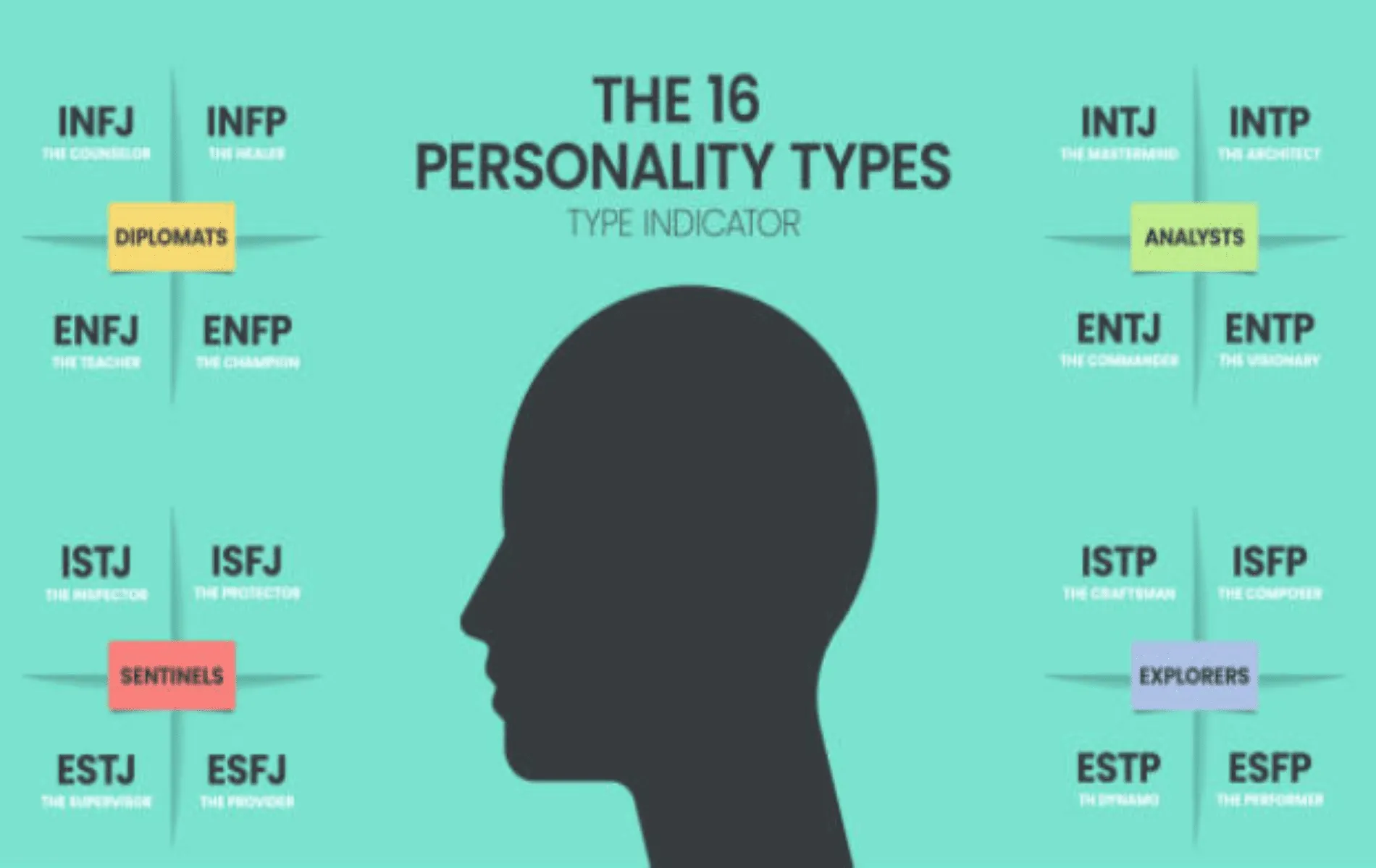
Myers-Briggs Type Indicator (MBTI)
The Myers-Briggs Type Indicator (MBTI) is a widely used and well-known psychological assessment tool that is based on the theories of Carl Jung. This assessment aims to categorize individuals into one of sixteen different personality types, each denoted by a combination of four letters: Extraversion (E) or Introversion (I), Sensing (S) or Intuition (N), Thinking (T) or Feeling (F), and Judging (J) or Perceiving (P).
The MBTI provides insight into various aspects of an individual's personality, including their preferences in how they perceive and interact with the world. One key aspect of the MBTI is its focus on understanding an individual's preferences in terms of extraversion versus introversion.
Those who fall under the extraversion category tend to be outgoing, sociable and energized by external stimuli. On the other hand, introverts are more reserved, introspective, and gain energy from solitude.
This aspect can be particularly useful in behavioral assessment for hiring purposes. For example, jobs that require frequent interaction with others may prioritize candidates who lean more toward extraversion, as they would likely excel in roles that involve collaboration and networking.

Another crucial dimension explored by the MBTI is sensing versus intuition. Individuals who lean toward sensing are detail-oriented, and practical, and rely heavily on their five senses to gather information about their surroundings.
Conversely, those inclined towards intuition are imaginative thinkers who focus on patterns and possibilities beyond what is immediately observable. Recognizing these preferences can assist employers in making informed decisions about team composition and task allocation within their organizations.
Moving forward to thinking vs feeling dimension in regards to MBTI tests it classifies individuals according to how they make decisions - whether based on rational analysis or personal values. Those who exhibit thinking tendencies tend to rely on logical reasoning while weighing pros and cons before making choices.
In contrast, individuals leaning toward feeling tend to prioritize personal values, empathy, and the impact on others in their decision-making process. Understanding this dimension can be crucial in team dynamics as it allows for the formation of diverse teams with different problem-solving approaches.
The Myers-Briggs Type Indicator (MBTI) is a powerful tool that provides valuable insights into an individual's personality preferences. By examining dimensions such as extraversion versus introversion, sensing versus intuition, and thinking versus feeling, this assessment aids in understanding how individuals perceive and interact with the world around them.
The MBTI’s applications range from behavioral assessment for hiring purposes to improving team dynamics within organizations. Employers who incorporate MBTI into their assessments gain a deeper understanding of candidates' strengths and preferences, ultimately leading to more informed decisions regarding job fit and team composition.
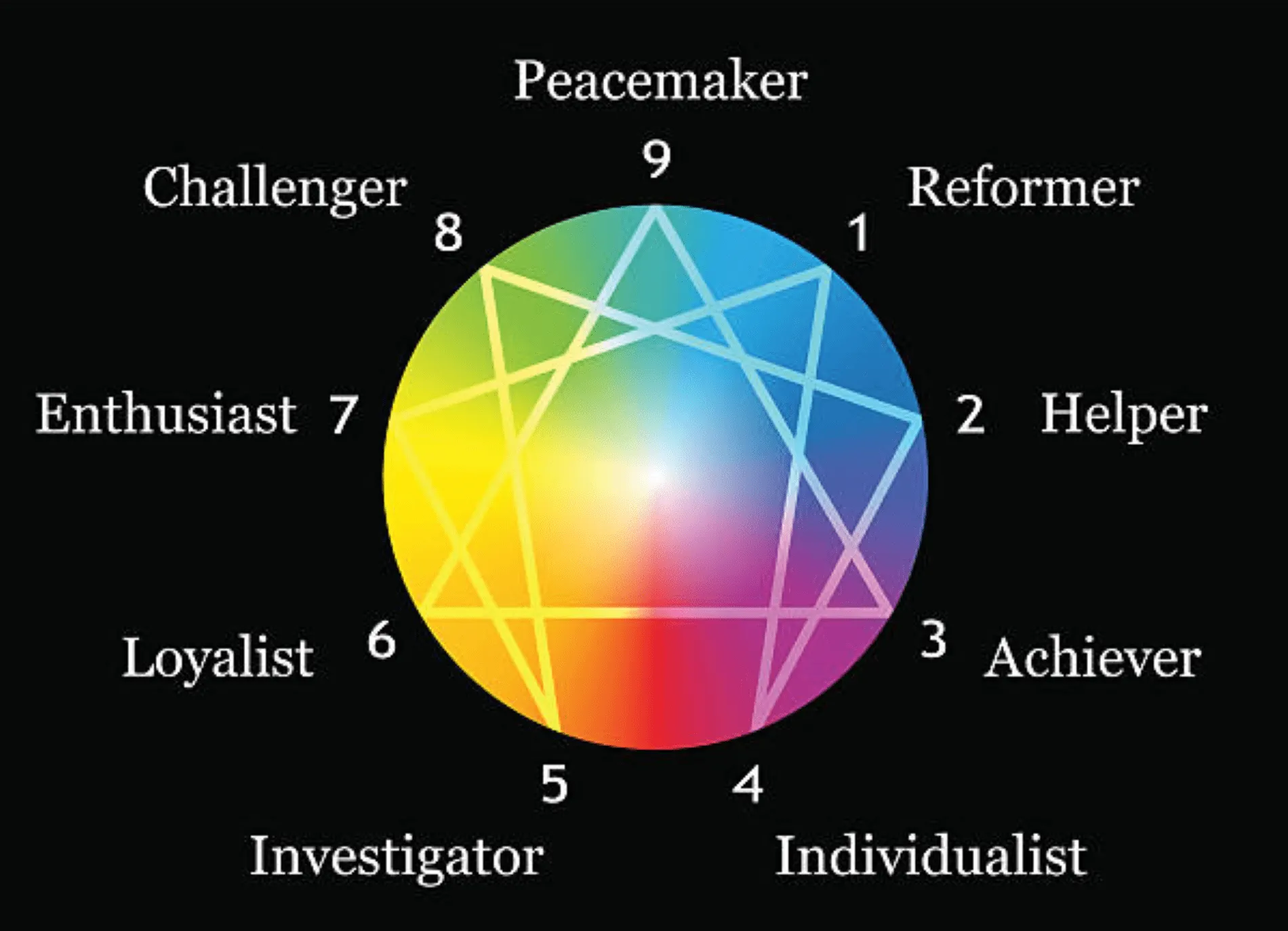
The Nine Enneagram Types
The Enneagram is a powerful tool for understanding personality and behavioral patterns.
It categorizes individuals into nine distinct types, each characterized by a core motivation that influences their thoughts, feelings, and actions. Understanding the Enneagram types provides valuable insights into how people perceive the world around them and how they respond to various situations.
1. The Perfectionist (Type One): Ones are often driven by their desire for perfection and have a strong sense of right and wrong. They are highly motivated to improve themselves and the world around them, but may sometimes become critical or judgmental.
2. The Helper (Type Two): Twos are compassionate individuals who thrive on helping others. They have an innate ability to sense the needs of those around them and willingly offer support or assistance. Their desire for appreciation can sometimes lead to self-neglect.
3. The Achiever (Type Three): Threes are ambitious, goal-oriented individuals who excel in various areas of life. They strive for success, recognition, and admiration from others. Their drive can make them highly competitive but may also lead to workaholic tendencies.
4. The Individualist (Type Four): Fours are sensitive souls with a deep longing for uniqueness and authenticity. They tend to be introspective, creative, and in touch with their emotions but may struggle with feelings of melancholy or self-doubt.
5. The Investigator (Type Five): Fives are analytical thinkers who crave knowledge and understanding of the world around them. They excel in research-based fields where they can explore ideas independently but may struggle with social interactions due to their introverted nature.
6: The Loyalist (Type Six): Sixes seek security by aligning themselves with trusted authority figures or systems that provide stability in their lives. Loyalists tend to be diligent workers who anticipate potential risks or obstacles but may occasionally struggle with anxiety or suspicion.
7. The Enthusiast (Type Seven): Sevens are lively, spontaneous individuals who seek new experiences and avoid boredom at all costs. They have a zest for life and an optimistic outlook but may struggle with commitments or avoiding pain.
8. The Challenger (Type Eight): Eights are assertive, powerful individuals who desire control and authority in their lives. They have a strong sense of justice and can be protective of those they care about but may occasionally exhibit a confrontational or domineering demeanor.
9. The Peacemaker (Type Nine): Nines value harmony, peace, and unity above all else. They tend to avoid conflict and prioritize maintaining relationships but may struggle with assertiveness or falling into complacency.
Understanding the nine Enneagram types allows individuals to gain self-awareness, improve their relationships with others, and create strategies for personal growth. By recognizing the motivations behind our actions and thoughts, we can make conscious choices to align them with our values and aspirations.
Behavioral assessments that incorporate the Enneagram can provide valuable insights for personal development, team-building exercises, conflict resolution strategies, or even behavioral assessment for hiring purposes. By understanding the distinct traits of each type, organizations can leverage this information to build well-rounded teams that complement each other's strengths while fostering an inclusive work culture that values diversity in personality styles.
Understanding the DISC Model
The DISC model is a widely recognized and utilized tool for understanding personality types. Developed by William Moulton Marston in the 1920s, the DISC model categorizes individuals into four primary behavioral styles: Dominance (D), Influence (I), Steadiness (S), and Conscientiousness (C).
Each style represents distinct patterns of behavior, communication preferences, and personal characteristics. The Dominance style (D) is characterized by assertiveness, directness, and a focus on results.
Individuals with this style are often seen as decisive leaders who enjoy taking charge and making decisions. They are driven by challenges and opportunities for growth.
The Influence style (I) is associated with sociability, enthusiasm, and persuasion skills. People with this style are outgoing, expressive, and enjoy being around others.
They excel in networking, building relationships, and inspiring others to take action. On the other hand, individuals with a Steadiness style (S) value stability, harmony, and cooperation.
They are known for their patience, empathy, and ability to work well in teams. Those with this style prioritize maintaining positive relationships while being dependable contributors to group efforts.
The Conscientiousness style (C) represents individuals who are analytical thinkers focused on accuracy and precision. People with this style tend to be detail-oriented perfectionists who excel in tasks requiring attention to detail or specialized knowledge.
Understanding these different behavioral styles can bring numerous benefits both in personal development and team dynamics. Recognizing one's own strengths and areas for growth based on their DISC profile or identifying the predominant styles within a team or organization through Behavioral Assessment tests or tools can help tailor communication strategies to build effective working relationships among team members while facilitating better collaboration among diverse personalities.
Leveraging Strengths for Personal Growth and Success
One of the key benefits of understanding personality types through behavioral assessments is the ability to leverage our strengths for personal growth and success. By identifying our natural preferences and tendencies, we can gain valuable insights into where our talents lie and how to harness them effectively.
Firstly, behavioral assessments provide us with a deeper understanding of our unique strengths. For instance, the Myers-Briggs Type Indicator (MBTI) categorizes individuals into different personality types, such as "The Thinker" or "The Innovator." These descriptions shed light on the qualities that come naturally to us.
Armed with this knowledge, we can focus on developing these strengths further and capitalizing on them in various aspects of our lives. Furthermore, behavioral assessments allow us to identify areas where we might need improvement or development.
By recognizing our weaknesses or areas that don't align with our natural inclinations, we can take proactive steps toward self-improvement. For example, the DISC model highlights four primary behavioral styles: Dominance, Influence, Steadiness, and Conscientiousness.
If someone scores low in Conscientiousness but needs to excel in detail-oriented tasks at work, they can use this information as a starting point for personal development efforts. Moreover, leveraging strengths for personal growth involves finding ways to apply them effectively in different contexts.
For instance, if a person's assessment results indicate strong leadership skills or excellent communication abilities, they can seek opportunities that allow them to utilize these skills fully—whether it be taking on leadership roles at work or actively participating in group projects outside of the office. Recognizing one's strengths not only boosts confidence but also increases the likelihood of achieving success by focusing energy which will yield maximum results.
Understanding and leveraging one's strengths through behavioral assessments are crucial for personal growth and success. These assessments provide valuable insights into individual preferences and tendencies while highlighting areas in need of improvement.
Armed with this knowledge, individuals can better navigate their personal and professional lives by capitalizing on their strengths, developing weaker areas, and choosing endeavors that align with their natural inclinations. By harnessing the power of behavioral assessments, individuals have the opportunity to unlock their full potential and achieve greater success in all aspects of life.
Uncover Hidden Gems: Mastering Behavioral Assessment in Hiring
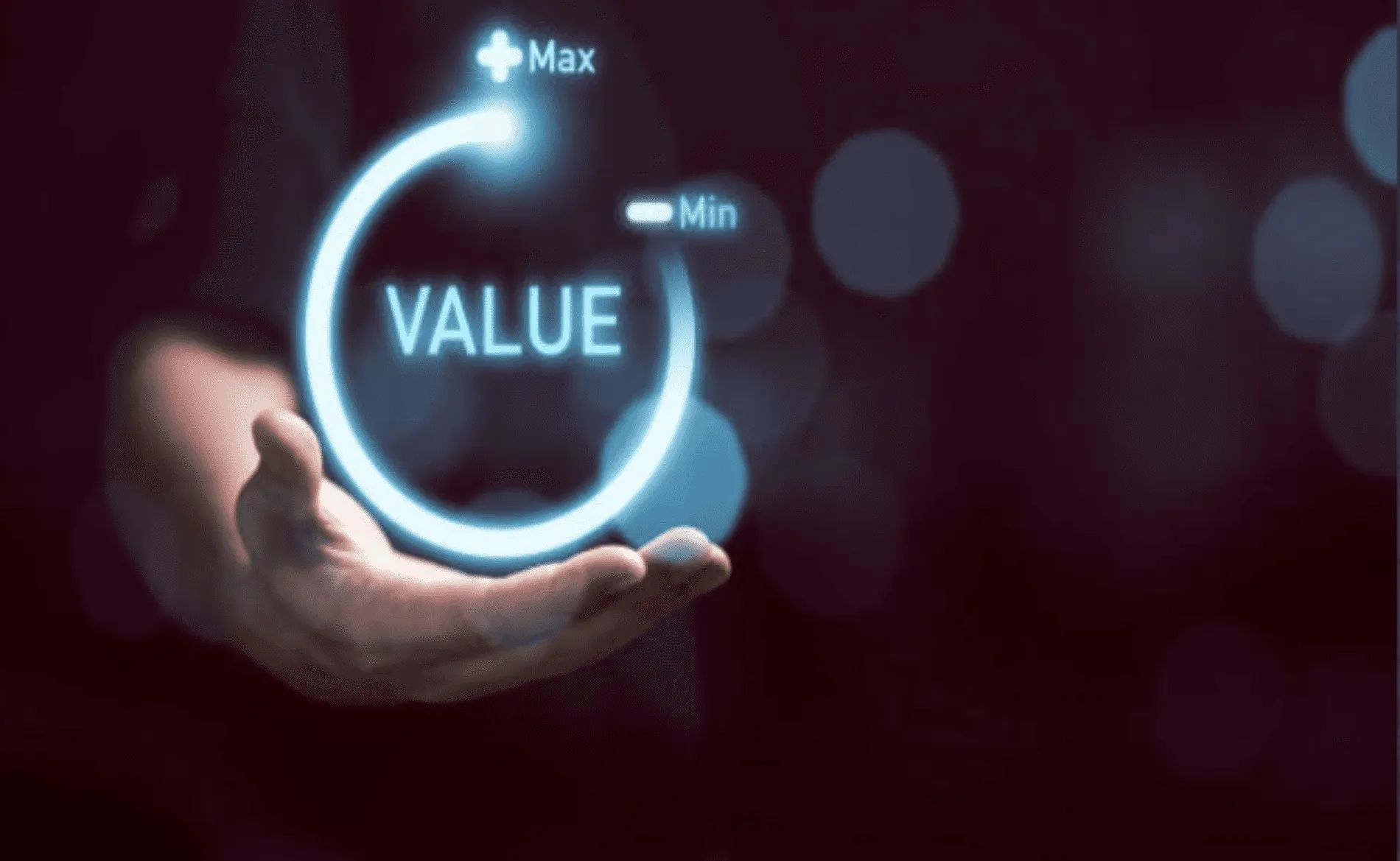
Advantages of Understanding Personality Types
Understanding personality types through behavioral assessments offers numerous advantages that can positively impact various aspects of our lives. By gaining insight into our own and others' personality traits, we can navigate social interactions, enhance communication skills, and improve personal growth and development.
One significant advantage of understanding personality types is the ability to improve self-awareness. The knowledge gained from a behavioral assessment test allows individuals to gain a deeper understanding of their strengths, weaknesses, preferences, and tendencies.
This self-awareness enables individuals to make more informed decisions about their career paths, relationships, and personal goals. For instance, someone who discovers they have strong analytical skills may choose a career in finance or data analysis rather than pursuing a role that requires excellent interpersonal skills.
Another advantage lies in improving interpersonal relationships. When we understand our own personality type as well as the personalities of others, we can adapt our communication styles to better connect with different individuals.
For example, if someone has an extroverted personality type with a preference for direct communication, they may need to adjust their approach when interacting with someone who has an introverted personality type and prefers more thoughtful reflection before responding. This awareness promotes empathy and understanding between individuals leading to healthier relationships.
Understanding personality types also proves advantageous in team settings or workplaces by promoting effective collaboration and productivity. By having insights into the unique strengths and weaknesses of team members based on their personality types obtained through behavioral assessments like the DISC model or Myers-Briggs Type Indicator (MBTI), teams can assign tasks accordingly and leverage each member's strengths for optimal outcomes.
This knowledge helps avoid potential conflicts within the team while fostering an environment where everyone feels valued for their contributions. Understanding personality types through behavioral assessments brings several advantages to our lives.
From improved self-awareness to enhanced interpersonal relationships and increased teamwork effectiveness - these benefits highlight the importance of delving into the world of personality typology via comprehensive assessments like MBTI or DISC. By unraveling the secrets behind personality types, we open doors to personal growth, success in both professional and personal relationships, and a deeper understanding of ourselves and the people around us.
Improving Team Dynamics and Performance
Teams are the backbone of any organization, and their effectiveness greatly depends on the dynamics among team members.
By understanding personality types through behavioral assessments, teams can enhance their collaboration, communication, and overall performance. The insights gained from these assessments provide a deeper understanding of individual strengths and weaknesses, allowing teams to distribute tasks efficiently and maximize productivity.
One key aspect of improving team dynamics is fostering effective communication. Behavioral assessments shed light on different communication styles that individuals possess based on their personality types.
For instance, some individuals may have a preference for direct and assertive communication, while others may lean towards a more diplomatic and empathetic approach. By recognizing these differences within the team via behavioral assessment tests, team members can adapt their communication styles to ensure effective exchanges of information that minimize conflicts and misunderstandings.
Furthermore, behavioral assessments also help in identifying complementary skill sets within a team. Each personality type brings unique strengths to the table that can be leveraged for maximum efficiency in task allocation.
By understanding individual preferences through these assessments, team leaders can strategically assign roles based on each member's strongest attributes. This ensures that tasks are delegated to those who excel in specific areas while also fostering a sense of empowerment among team members
.
In addition to improved communication and task allocation, behavioral assessments also enable teams to cultivate empathy among members. When individuals understand each other's personality types better, they become more empathetic towards different approaches or perspectives on projects or challenges faced by the team as a whole.
This empathy translates into stronger support systems within teams as individuals learn how to relate to one another's needs and motivations effectively. Improving team dynamics relies heavily on understanding individual personalities within the group via behavioral assessments.
These assessments enable teams to tailor their approach to communication styles, allocate tasks strategically based on strengths, and foster empathy among members for enhanced collaboration. By integrating this knowledge into daily interactions and decision-making processes, organizations can create an environment that maximizes team potential and drives overall performance.
How to Choose the Right Assessment for You
When it comes to choosing the right assessment for understanding your personality type, there are several key factors to consider. Whether you're seeking personal growth or aiming to improve team dynamics in your organization, finding the best-suited assessment is crucial. Here are three essential tips to help you make an informed decision.
Firstly, consider your goals and objectives. Are you interested in gaining self-awareness and personal development?
Or are you specifically looking for a behavioral assessment for hiring purposes? Different assessments cater to various needs.
For personal growth, assessments like the Myers-Briggs Type Indicator (MBTI) or the Enneagram can provide valuable insights into your strengths, weaknesses, and potential areas of growth. On the other hand, if you're an employer seeking insights into candidates' personality traits during hiring processes, assessments like DISC or other similar behavioral assessment tests may be more suitable.
Secondly, evaluate the reliability and validity of the assessment tools available. It's important to choose assessments that have been scientifically validated and widely recognized within the field of psychology.
Look for established assessment models that have undergone rigorous testing and research over time. Assessments with a solid foundation in psychological theory can offer more accurate results, ensuring that you receive trustworthy insights into your personality type.
Consider the accessibility and ease of use of different assessments. Some assessments require extensive training or certification to administer properly, while others can be completed online with ease.
If you're an individual seeking personal growth opportunities, online self-assessments might be a convenient option. However, if you're an employer looking to use behavioral assessments for hiring purposes or team development initiatives within your organization, it may be worth investing in professional consultants who specialize in administering and interpreting these tests accurately.
By considering these factors – aligning with your objectives, assessing reliability and validity, and evaluating accessibility – you can make an informed decision about which behavioral assessment is right for you or your organization's needs. Remember that choosing the right assessment is crucial for obtaining accurate insights into personality types, enabling personal growth, and enhancing team dynamics.
Consider Your Goals and Objectives
When it comes to choosing the right behavioral assessment, it is crucial to consider your goals and objectives. Different assessments serve different purposes, and understanding what you hope to achieve will help you make an informed decision.
Whether you are looking for personal growth, team building, or hiring purposes, selecting the appropriate assessment can make a significant difference in achieving your desired outcomes. For individuals seeking personal growth and self-awareness, a comprehensive behavioral assessment test like the Myers-Briggs Type Indicator (MBTI) or the Enneagram can provide valuable insights into one's personality type and preferences.
These assessments delve deep into various aspects of an individual's behavior, thinking patterns, and emotional tendencies. By understanding their innate traits, individuals can better navigate relationships, communicate effectively with others, and harness their strengths for personal fulfillment.
On the other hand, if your objective revolves around team dynamics or enhancing organizational performance, assessments like the DISC model might be more suitable. The DISC model categorizes individuals into four dimensions of behavior: Dominance (D), Influence (I), Steadiness (S), and Conscientiousness (C).
This framework helps identify team members' communication styles, work preferences, and potential conflicts within a group dynamic. By utilizing this knowledge effectively in team-building exercises or training programs, organizations can improve collaboration among employees and foster a harmonious work environment.
Moreover, for those involved in hiring processes or talent acquisition roles within organizations, behavioral assessments designed specifically for recruitment purposes should be considered. These specialized assessments evaluate candidates' personality traits that are relevant to job performance.
They provide insights into how candidates may behave in certain situations at work – their leadership potential or ability to work in teams – which can assist recruiters in making informed decisions based on comprehensive data rather than just qualifications on paper. When selecting a behavioral assessment test that aligns with your goals and objectives; it is essential to consider the purpose for which you are using it.
Personal growth, team building, and hiring all require different types of assessments. By understanding your objectives clearly, you can choose the right assessment tool that will provide accurate and valuable insights to help you achieve your desired outcomes effectively.
Conclusion
Understanding personality types and utilizing behavioral assessments can have a profound impact on personal growth, team dynamics, and overall success in various aspects of life. Through the exploration of different models such as the Big Five Model, Myers-Briggs Type Indicator (MBTI), Nine Enneagram Types, and the DISC Model, individuals can gain valuable insights into their own behaviors and preferences. Armed with this knowledge, they can leverage their strengths, work on areas for improvement, and make more informed decisions in both personal and professional domains.
Behavioral assessments have become increasingly important in today's world, particularly in the realm of hiring. By using these assessments as part of the recruitment process, employers can gain a deeper understanding of a candidate's personality traits and how they align with the requirements of a specific role or team dynamic.
This not only increases the chances of finding the right fit for a position but also contributes to building stronger teams that are more cohesive and productive. Choosing the proper behavioral assessment test is crucial.
It is important to consider your specific goals and objectives when selecting an assessment tool. Different models offer distinct frameworks for understanding personality types and behaviors.
By aligning your objectives with the appropriate assessment method, you can ensure that you derive maximum benefits from the insights gained. In essence, uncovering the secrets of personality types through behavioral assessments is an empowering journey that unlocks self-awareness and enhances our interactions with others.
By embracing this knowledge and using it strategically to navigate through various situations in life, we can cultivate healthier relationships, and pursue fulfilling careers or hobbies that align with our natural inclinations while continuing to grow personally. With patience and dedication to self-improvement based on these findings from behavioral assessments; we become architects who shape our destiny towards more tremendous success and satisfaction in life.
__________________________________________________________________________________
Want to learn how we use behavioral assessments to make sure you make the right hire the first time? Book a no-obligation strategy call
